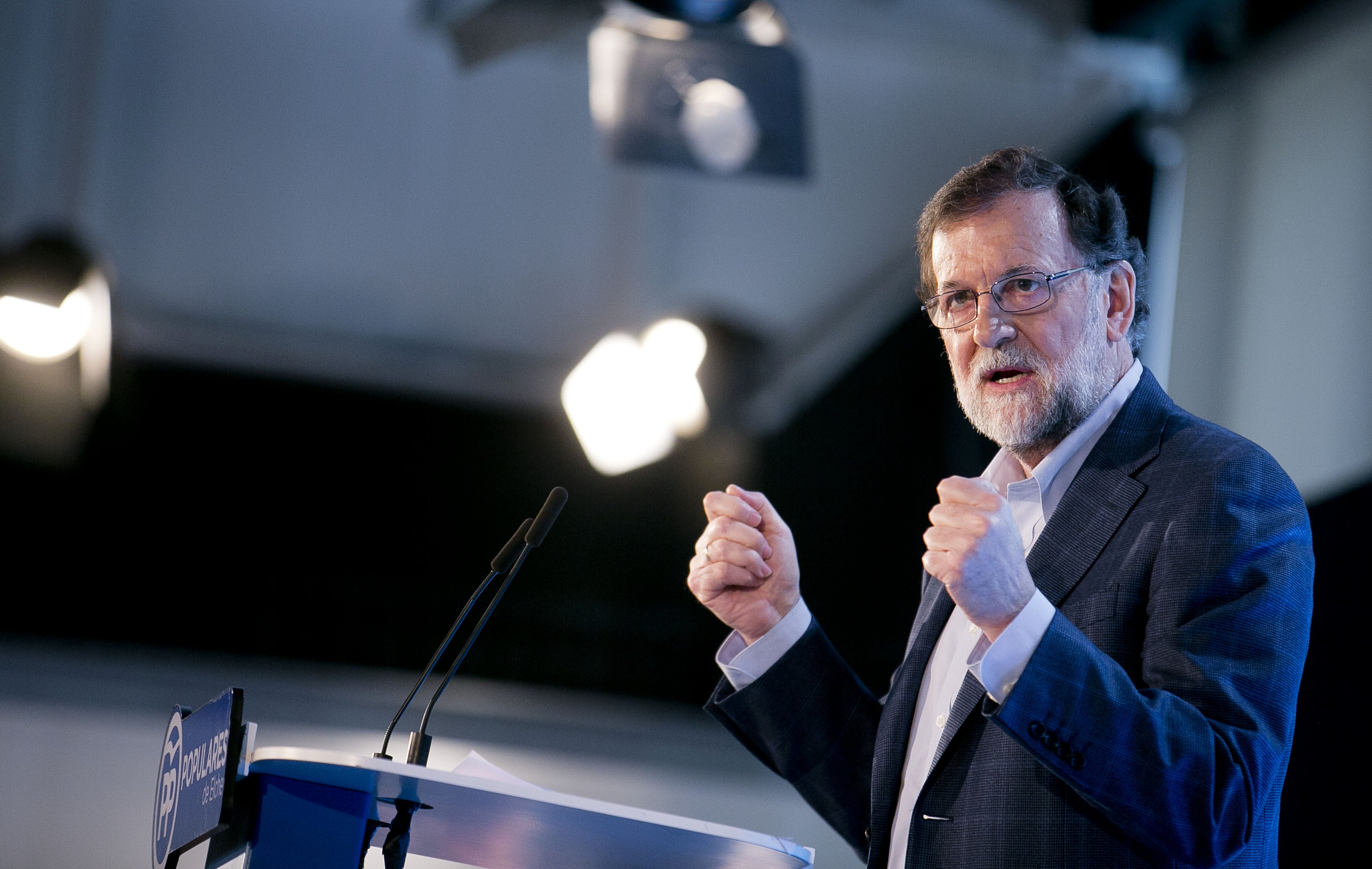Spanish prime minister, Mariano Rajoy, has described "debates" about languages as an "attack against progress", which means bringing back "the worst of the past". The comment was in reference to his own government's controversial announcement of its plans to use its suspension of Catalan autonomy to change the language model in Catalonia's schools. He called for directing resources to the "digital revolution", instead of imposing a language on people "who don't want it imposed on them". In his speech closing a conference on SMEs and freelance workers organised by his PP party in Valencia, Rajoy highlighted the party's "moderate, centred, open" values and its "openness to dialogue" when faced with the "fluid offers and airy experiments", which he says he leaves to "others".
Rajoy also referred to the reforming of Spain's model of financing its autonomous communities, noting that he expressed opposition to the latest model from 2009, because "only [some] benefit from it", who now "don't like it either".
He said that his party is prepared to reform the system, but urges the opposition to "take decisions". "We're ready to, the government has to get involved, but the opposition has to get involved too, which all Spaniards have to defend," he said.
As such, he said that "speaking is easy", but governing and taking decisions, not so much. He continued that his party has "always made possible what was necessary".
Rajoy has also said that the Mediterranean corridor, the planned rail link from the south of Spain, up the east coast, through Catalonia to France, "will happen" and "the PP will do it" and promised more investment in infrastructure in Valencia. That said, he warned they cannot spend money they don't have: "I'd like to make four Mediterranean corridors, one after the other, but we have to understand that the badly-understood reality is an implacable enemy and you can't spend what you don't have".
Stopping "linguistic blackmail" in the courts
The president of PP in Valencia, Isabel Bonig, said that it was the "civil society of Valencia" and the PP who stopped the decree of "linguistic blackmail" in the courts. She expressed regret that the Valencian Parliament has this week approved the Law of multilingualism, brought as a bill after the courts overturned parts of an earlier decree on the subject. The law sets minimums of 25% of class time each to be in Spanish and Valencian, with a further 15-25% of teaching to be in English. Bonig said it "again pressures" parents' freedom to choose their children's working language at school. "The same model of linguistic imposition from Catalonia is moving to Valencia," she said.
She said that "only the PP", despite the "overreactions from some", has defended in the courts parents' freedom to choose the language their children study in and added that "they would be thankful for help" from other parties to respect what they understand to be a constitutional right. "Valencian, like Spanish, in this land has never been nor will it ever be a tool to fight over, but a source of union," she concluded.

